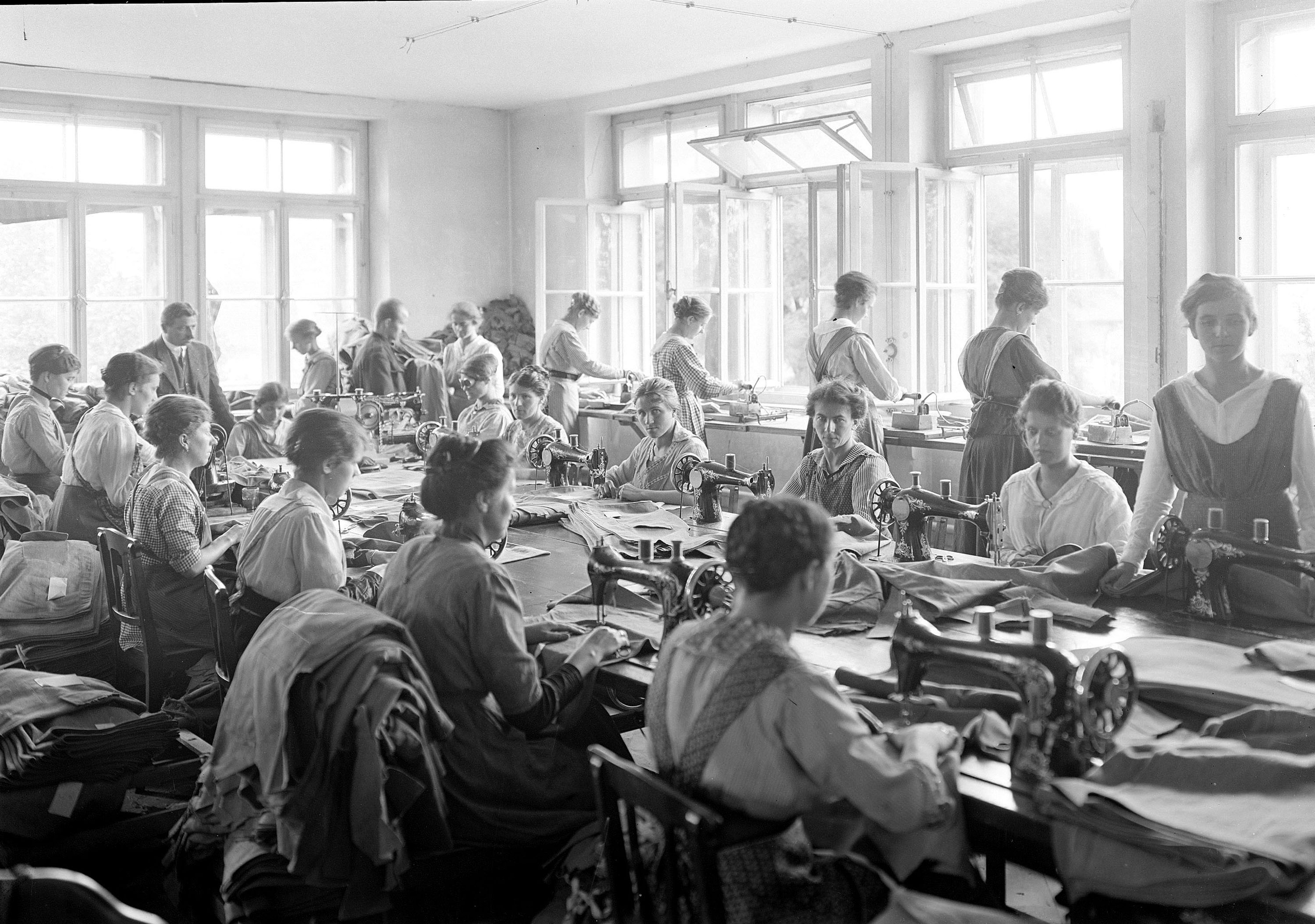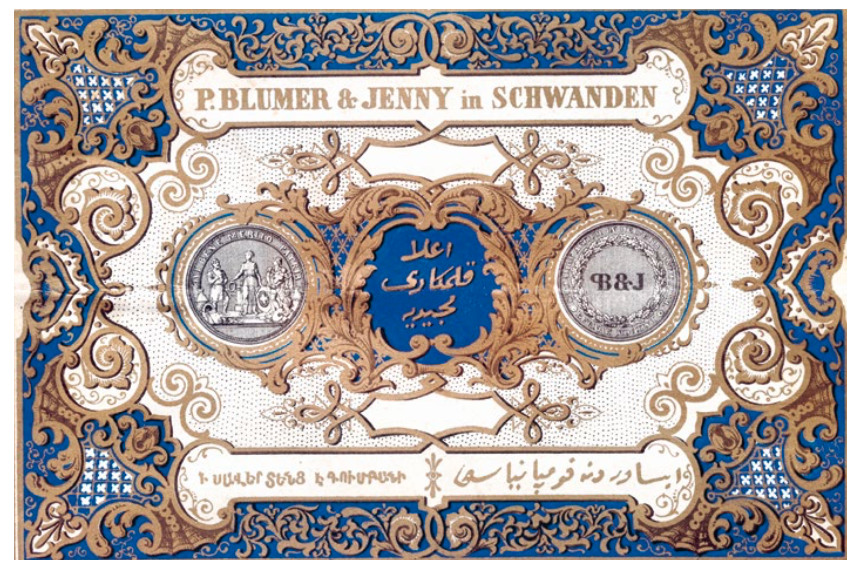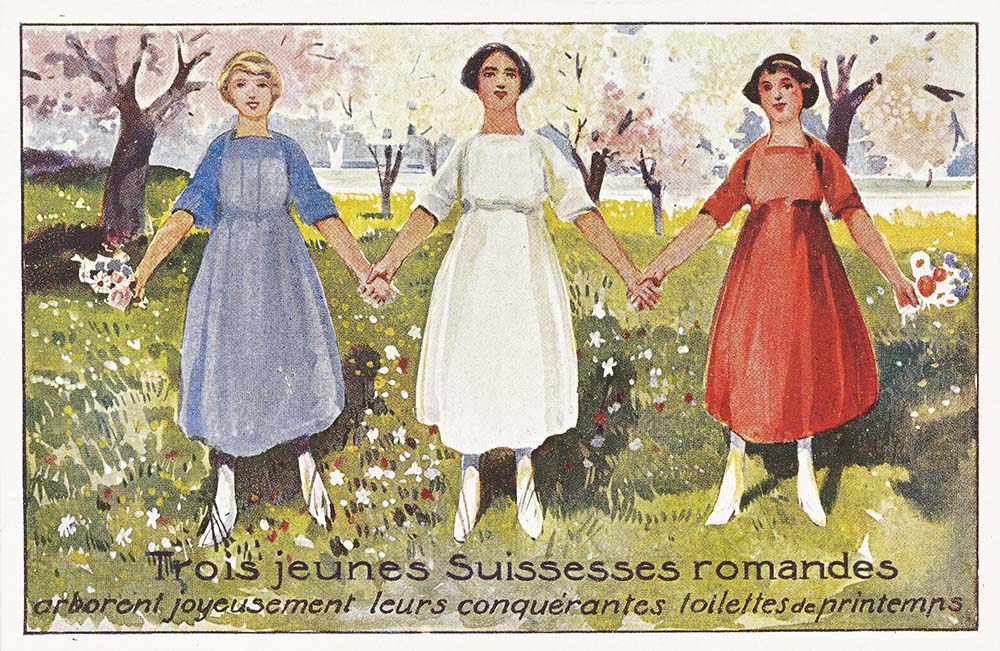Europe or the world? The 150-year dilemma for economiesuisse

The Swiss government’s decision to abandon a framework agreement with the European Union is a blow for economiesuisse. For 150 years the Swiss Business Federation has been torn between European markets and the rest of the world in terms of free trade.
Once again economiesuisse is shaken. The umbrella organisation is worried about the stability of its commercial ties with the EU after the Swiss government in May unilaterally walked away from seven years of negotiations concerning an overarching agreement to simplify bilateral relations with Brussels.
“Since medieval times our big European neighbours and discrimination against Swiss companies have been a core concern,” says Andrea Franc, an economic historian who has just published a book called En dialogue avec le monde. Les entreprises suisses aux XIXe et XXe siècles (Talking to the world: Swiss companies in the 19th and 20th centuries) to mark economiesuisse’s 150th anniversary. Since it was founded in 1870, the oldest business federation, as a proponent of free trade, has been torn between access to markets in adjoining countries and access to those in the rest of the world.
Blockade and contraband
For landlocked Switzerland, free trade with Europe proved essential very early on. Swiss merchants defended it fiercely. From the end of the Middle Ages, the chamber of commerce and industry in St Gallen and Appenzell, the oldest in the country, played a decisive role. Its merchants were in the front line in defying Napoleon’s Continental Blockade (1803-1813).
While they indulged in contraband English products, the Swiss parliament tried to appease France. The experience of the Continental Blockade left a lasting impression on Swiss trade. Deprived of outlets, Swiss traders conquered new markets outside Europe such as the United States. They became pioneers of globalisation.
The protectionism that arose in the wake of the Treaty of Vienna – such as the 1834 Zollverein, or German customs union – reinforced their mistrust of neighbouring countries.
“For 150 years, the priority has been securing open channels to the rest of the world in order to keep dependence on Europe’s unpredictable great powers to a minimum,” Franc says.
Businessmen and politicians
In the founding era of modern Switzerland, cantonal chambers of commerce managed the economy and external trade by necessity. Peter Jenny (1824-1879), a Glarus native, was the embodiment of the globally active textile industrialist – he had a branch in the Philippines – and he was a member of the liberal governing elite.
The time grew ripe for trade agreements with other nations. Up to this point, the cantonal trade organisations did not trade much with each other. In 1869, at Jenny’s initiative, delegates from 13 cantonal trade organisations met. Initially the French-speakers mistrusted a national association: they continued to hold discussions directly with the federal government.
The founding assembly of the future Swiss Union of Commerce and Industry (USCI) met on March 12, 1870. The union was inspired by the former Confederation: a cantonal chamber of commerce elected as “Vorort” assumed the presidency for two years. The first mandate went to the Bernese. In 1878 the Vorort established a permanent secretariat.

More
1914: how war changed Swiss life
Straddling the fence
Coming out of the First World War, exports plummeted, while trade unions and farmers in Switzerland became involved in economic policy-making.
Under pressure to act, USCI president Hans Sulzer (1876-1959), and the Vorort director Heinrich Homberger (1896-1985) in particular took active roles in the economy during the Second World War. In the middle of the conflict the USCI managed to straddle the fence in the name of free trade. As a minister, Sulzer held talks with the Allies abroad; as “eighth Federal Councillor”, Homberger negotiated with the Axis.

Faced with growing interference by the state in the economy, a neo-liberal movement took root: in 1942 the Society for the Development of the Swiss Economy was founded. This thinktank and the Vorort gradually drew closer until the 2000 merger to create economiesuisse.
Fortress Europe
As international institutions such as the International Monetary Fund, the World Bank and GATT (General Agreement on Tariffs and Trade) emerged after the war on the one hand and the European bloc took shape on the other, the eternal dilemma of the Vorort resurfaced.
“The question of free trade on a European level or on a global level is an enduring one. For Swiss companies, membership of a European zone could mean discriminating against non-European companies. Even at the heart of the Vorort, opinions about a number of different accords aren’t unanimous,” Franc says.
Faced with “Fortress Europe”, the Vorort is promoting the European Free Trade Association (EFTA), founded in 1960, as an alternative. The USCI is not overly excited by the European Economic Area (EEA), but it firmly rejects the European Community.
In the way that France used to, Brussels now embodies the “big, powerful neighbour from which Swiss companies, thanks to centuries of experience, expect nothing but discrimination and absolutely no favours,” Franc says.
The USCI is pushing in vain for a vote in favour of the EEA, which it deems to be the lesser evil. “Switzerland had to choose between Europe and the world, as it always has,” says Andrea Franc. “It chose the world.”

More
Switzerland sees greatest economic benefits from globalisation

In compliance with the JTI standards
More: SWI swissinfo.ch certified by the Journalism Trust Initiative











Join the conversation!